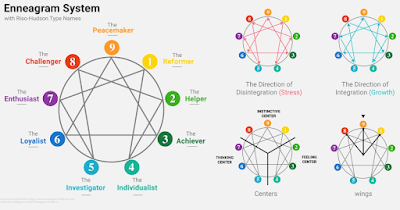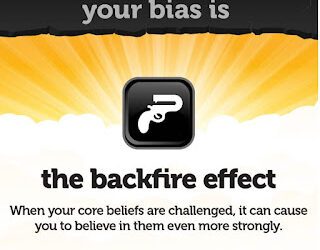What would it take to convince you to convert to a different religion and how long do you think it would take? Whatever your answer is, keep in mind that people of other belief systems are likely just as resistant, if not more resistant, to convert to Christianity. As hard as this task is on it’s own, the backfire effect makes apologetics even more difficult. Now comes the time to learn some methods that can make apologetics and evangelism more effective, and hopefully, even more enjoyable!

There are a good number of books out there on how to do apologetics effectively. Perhaps the most popular one is Tactics by Greg Koukl. Personally, I love that book and recommend it to people constantly, but what is there for people who want to step up to the next level. Relational Apologetics is an equally great book on the subject that approaches apologetics from a different angle, but if there were scientific data on persuasion, don’t you think that would be immensely helpful? Thankfully, there is scientific research on persuasion.

If we look outside the Christian literature, one book stands out among the rest on the science of persuasion. The book is Influence: Science and Practice (the previous edition is Influence: The Psychology of Persuasion) by Robert Cialdini. This is a completely secular book, but the principles in the book can easily be used for apologetics and evangelism. I’ll give a quick overview of the principles in this post and then do a separate post for each specific principle applied to evangelism and apologetics.
Before getting into the principles, I want to point out that there is no single best or most effective principle. They are all important and have various effects on different people and in different situations. However, I did organize them according to what I think is the most important for apologists to focus on. Applying these principles will take a bit of extra work, but it will be worth it.
- Liking – People are more open to listening to people they like. If you’re wondering where personal factors come in to play, it’s mostly in this category because not everyone likes the same things. Earn the right to give an apologetic instead of thrusting it on them.
- Reciprocity – Most people don’t want to seem rude. If you give people something, anything really, they will be much more likely to give you time, make some sort of commitment (like studying a book together), or listen to you.
- Social proof – Nothing draws a crowd like a crowd. People are much more likely to agree with people of their in-group than to disagree so build close bonds with unbelievers, and not just for the same of conversion, but for genuine friendship, and point out how many other people like them are Christians.
- Commitment and Consistency – Nobody likes to go back on their word, especially publicly. Focus on areas of agreement and build a case from what they already profess to believe, but them hold them to what they’ve already said they believe. Point out when they contradict one of their previous statements.
- Scarcity – People want things they can’t have, are hard to get, or make them feel special. Focus on the unique aspects of Christianity that sets it apart from and above other religions or worldviews.
- Authority – Everyone is an expert on everything these days. Find subtle ways to point out your expertise if you have it, gently draw attention to the limitations of their knowledge (it’s extremely important to do this delicately, and if you can’t don’t do it), and cite the names and works of genuine experts, preferably those who are non-Christians, to support your point whenever possible.
- Bonus Tips – This is my own category that includes miscellaneous items that don’t fit well into other categories like building trust and respect, making your case by telling interesting stories, and more.
Conclusion
What makes these principles so effective is that by using them, you appeal to the whole of a person and not just one aspect of them. Moreover, the principles are broad enough and flexible enough to be applied differently for different people. However, I must give a final warning. These principles must be used genuinely and honestly. For instance, don’t claim people are Christians if they are not to try to bolster social proof. People will see through your BS, so don’t do it.
In the next several posts, I will discuss each principle individually and give practical suggestions on how to use it to your advantage. However, because some practices can fit into multiple categories and sometimes it can be unclear when to use them, I will eventually look at ways to use these principles in different situations. This way, you can know how these principles might work when you first meet a person, talk to someone in the checkout line at the store, or with a family member you’ve known for 25 years.
P.S. I added a “follow by e-mail” and subscribe buttons on the right so now you can get notified directly when I post a new article.
Other Apologetic Method Resources
How to Win Friends and Influence People is not an apologetics and evangelism book, but it’s still an excellent resource for it.
A New Kind of Apologist is an updated and slightly different version of Apologetics for a New Generation. It might be good to have both in your collection.
How to Give Away your Faith is a classic book on the subject that is still relevant.
In addition to these resources, there are several apologists who are excellent models of these principles in their writing and speaking. Here are the apologists who I think are the best at presenting their case persuasively.
Ravi Zacharias and pretty much his whole team of speakers
Mark Mittelberg & Lee Strobel
Alan Shlemon
Sean McDowell
J. Warner Wallace
Craig Hazen
Tim Keller
There are probably others deserving to be on this list, but I am not familiar enough with their style to add them, so I apologize to anyone deserving whom I left out.



